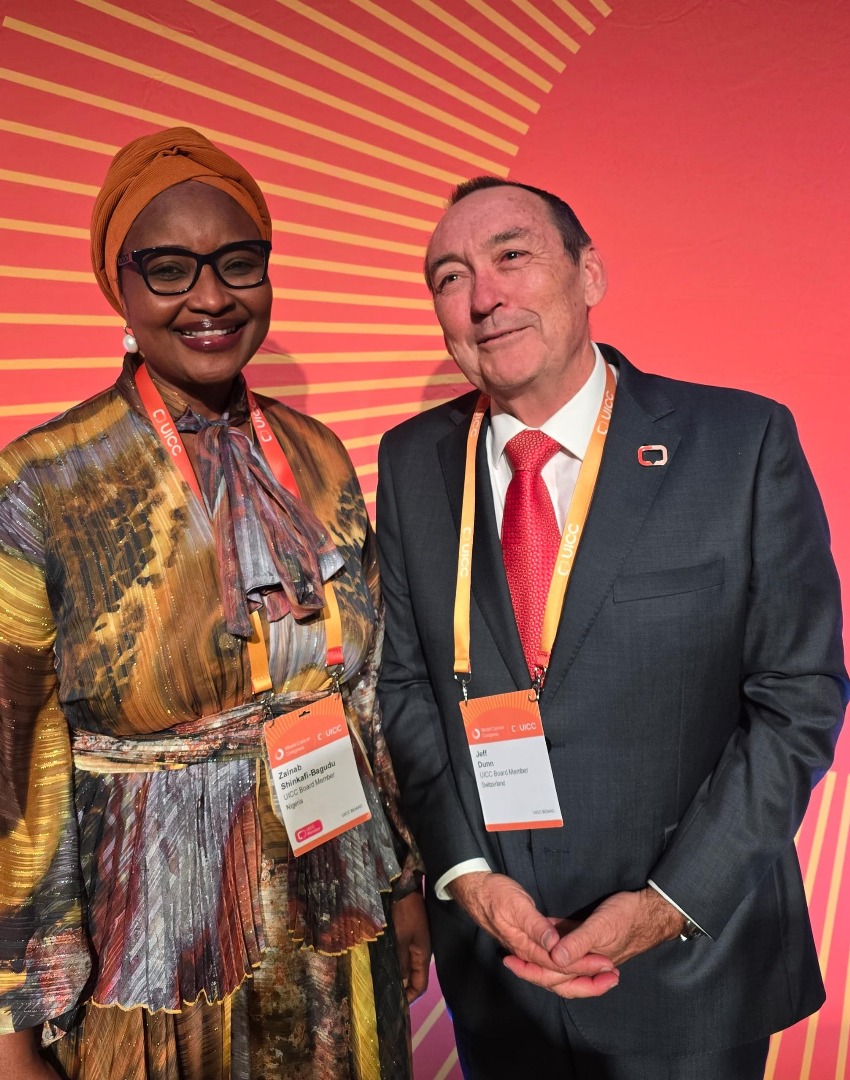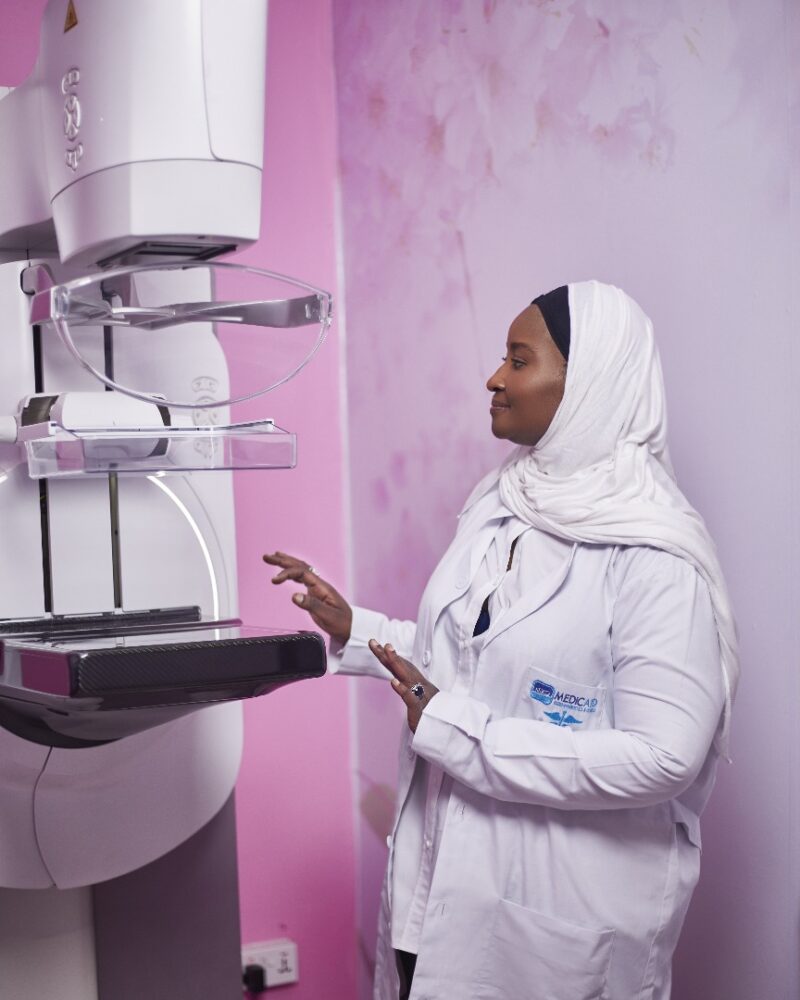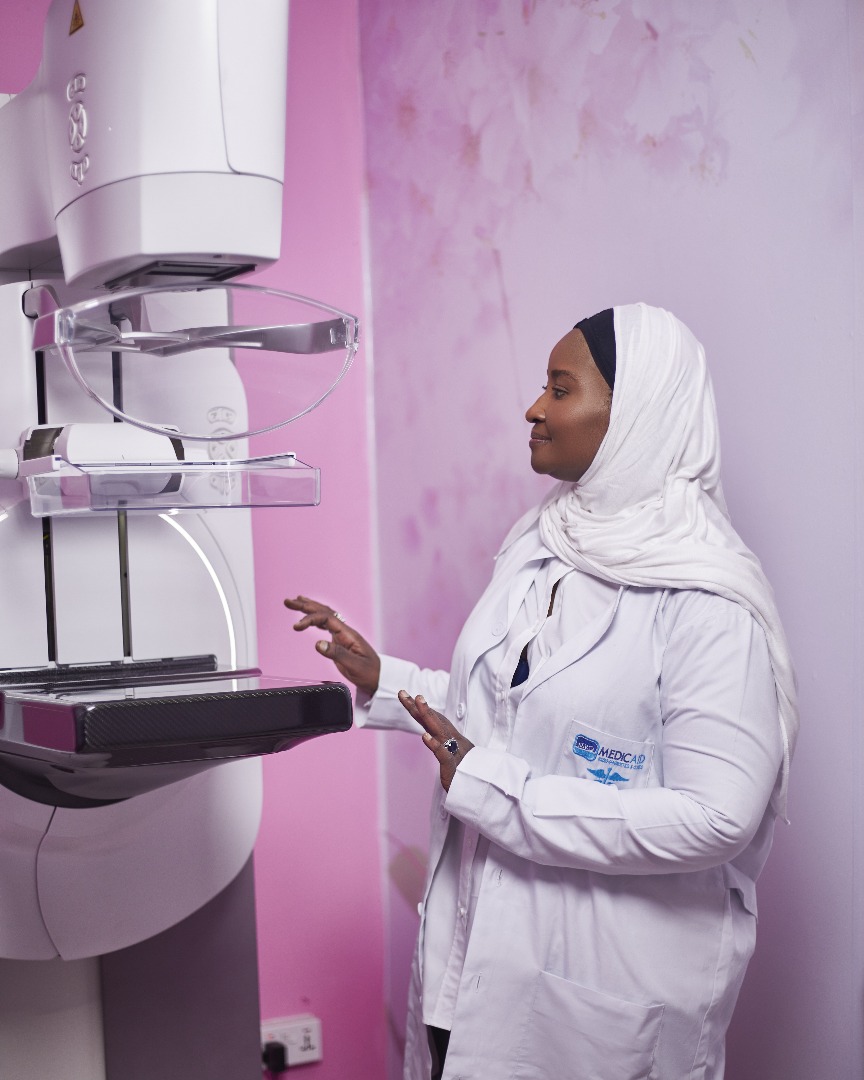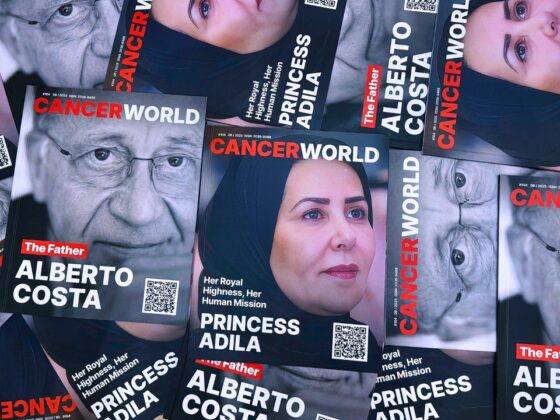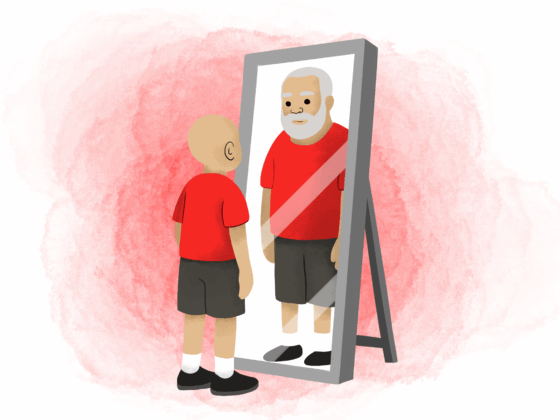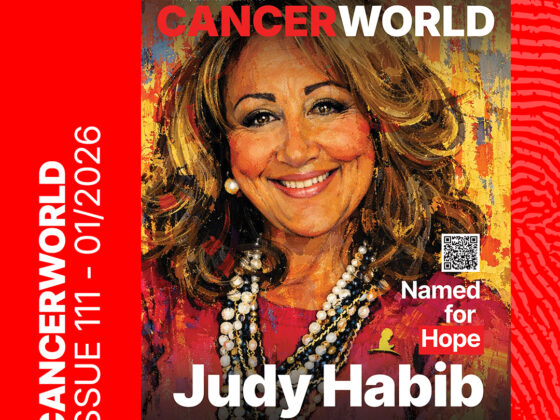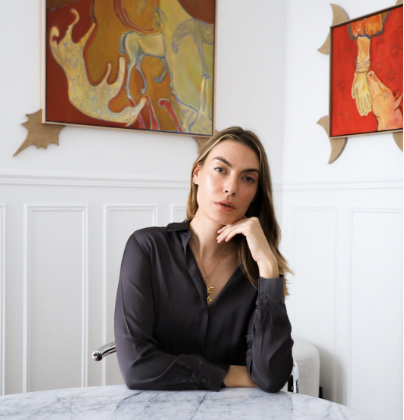Experience gained over decades of tackling cancer and supporting patients in Africa’s most populous country gives Zainab Shinkafi-Bagudu unique insights and influence to help bring about progress in similar settings across the globe. She talked to CancerWorld journalist, Diana Mwango, about her journey into advocacy and her priorities as the next UICC President.
The election of Zainab Shinkafi-Bagudu to take over the presidency of the UICC has been widely welcomed as a significant milestone for the global cancer community. When she assumes the leadership role in October 2026, she will become the first African to lead the world’s oldest and largest global cancer organisation since it was founded in 1933.
That is important at the level of representation, as a role model and recognition of the progress that sub-Saharan Africa has made in building its cancer advocacy. More significant, perhaps, are the personal skills and experience Bagudu brings from years of navigating Nigeria’s under-resourced healthcare system.
She did this not by following a pre-written plan, but by responding to real-world gaps with practical solutions, blending her medical training from the UK with on-the-ground realities in Nigeria. She mobilised civic, corporate, and international support and used her platform as First Lady of Kebbi State (2015–2023) to rally other First Ladies in pushing for equitable cancer care across Nigeria.
The Road to Cancer Advocacy
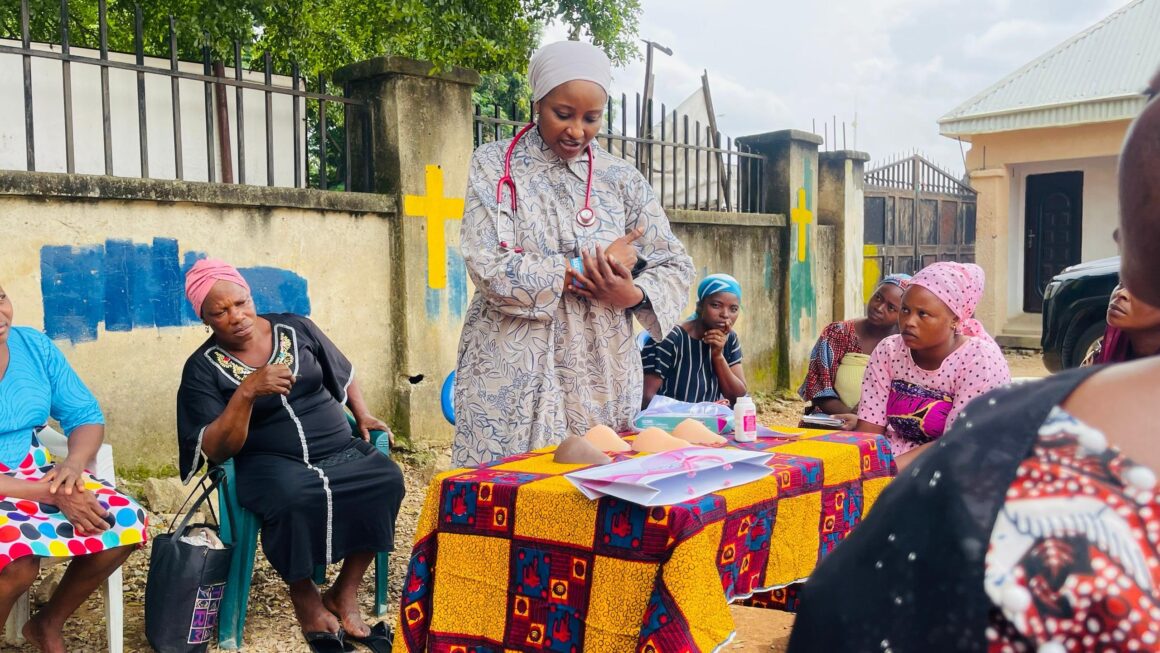
When Bagudu returned to Nigeria after her Master’s in Tropical Paediatrics from the London School of Hygiene and Tropical Medicine, she intended to treat children. But she quickly saw an urgent gap in cancer care.
“Cancer awareness was low, and so was diagnostic capacity. The elaborate tests available in the UK weren’t there,” she recalls. She set up a diagnostic centre, and one of the tests they offered was mammograms, which exposed the extent of late-stage breast cancer diagnoses.
Realising that most patients lacked awareness, she started informal gatherings, small coffee evening meet-ups for women, to teach them how to self-examine. These efforts grew into the Medicaid Cancer Foundation, which supports patients and caregivers across Nigeria.
“It began with chats: ‘If there’s a breast lump, touch here, feel that.’ Then, we’d advise screening: ‘Go for a mammogram or ultrasound’,” she says.
As her work on awareness and early detection began to bear fruit, another issue emerged: patients didn’t know where to go next. There were no clear pathways. Funding treatment for those without means was another hurdle. Bagudu responded by organising annual cancer walks to raise funds.
“We’d raise about US$26,000 (40 million naira) annually, but that could be exhausted by treating just 10 cancer patients. So, what next?”
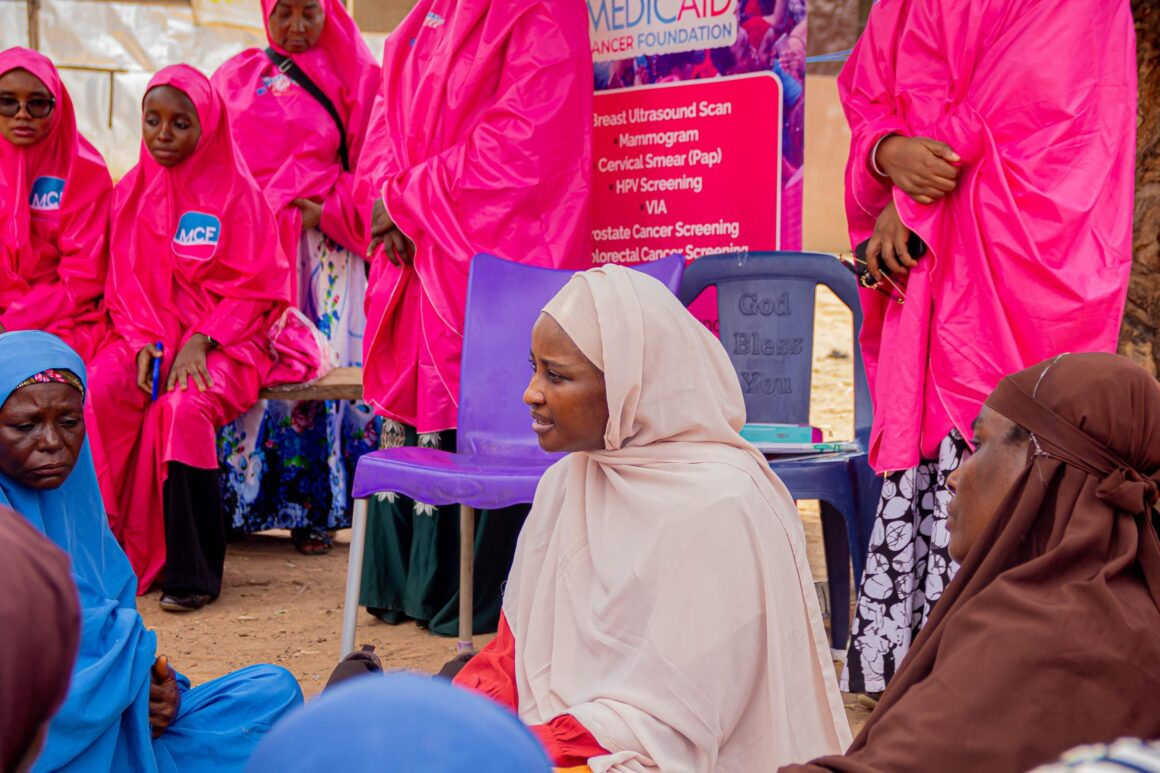
This led to deeper advocacy. She began looking beyond donations, turning to the government, not for direct financial aid, but to push for sustainable mechanisms to fund cancer care.
“That’s how we worked tirelessly to establish the National Fund for Cancer Care [a government-backed fund to support patients],” she says, “But many don’t even know this fund exists. That’s why advocacy is crucial.” Over the years, she became a public figure strongly associated with cancer work. “As soon as people see me, the conversation turns to cancer. It has become my mission, my identity.”
Under her leadership, the Medicaid Cancer Foundation has expanded its scope from awareness to policy. Prevention, especially HPV vaccination, is a priority. With support from Gavi, over 13 million girls in Nigeria are now protected against cervical cancer.
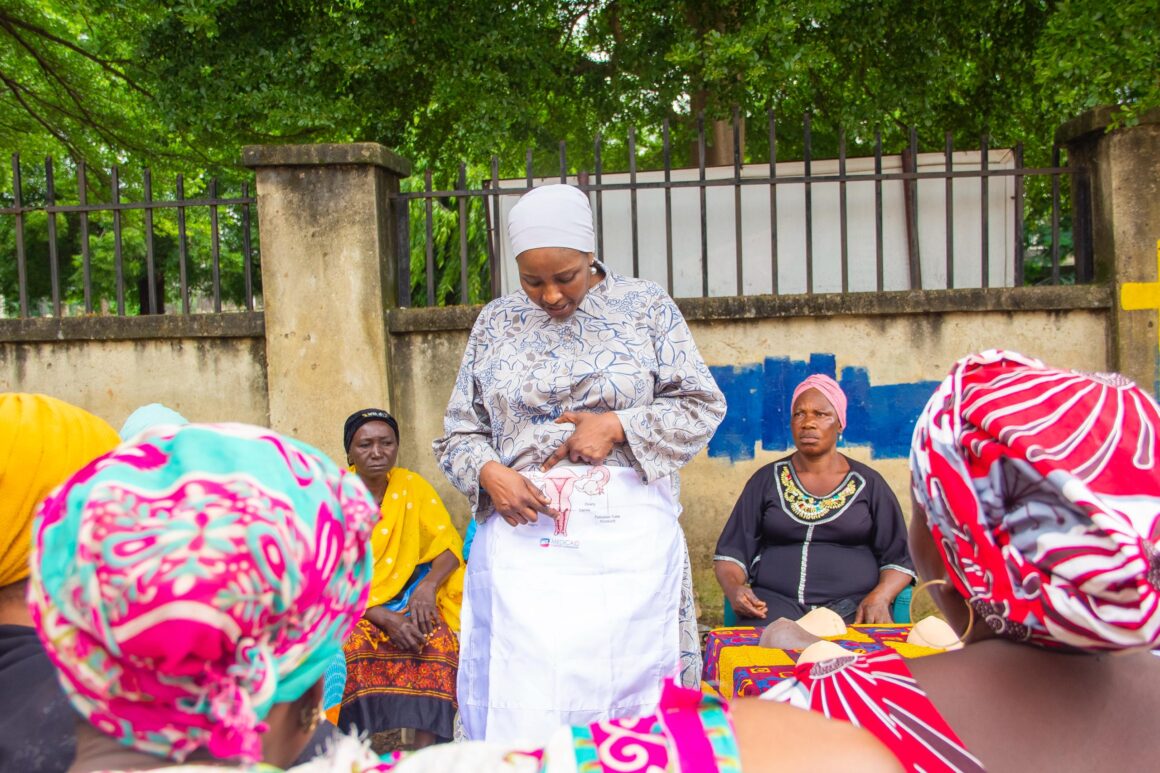
The Experience to Lead
Nigeria’s cancer challenges are mirrored in many low- and lower-middle-income countries. Bagudu’s 30 years as a doctor, 16 years running a foundation, and nearly two decades managing diagnostics equip her with experience to help in similar contexts as the next UICC president.
“There’s so much work to be done,” she says, “but I understand both worlds – wealthy and poor nations. I know where to focus.”Her focus: push for stronger national cancer policies, improve prevention, reduce late diagnoses, and increase access to treatment. “Whether it’s getting women to examine their breasts, ensuring our girls are vaccinated against HPV, or making drugs more affordable, there are critical issues.”
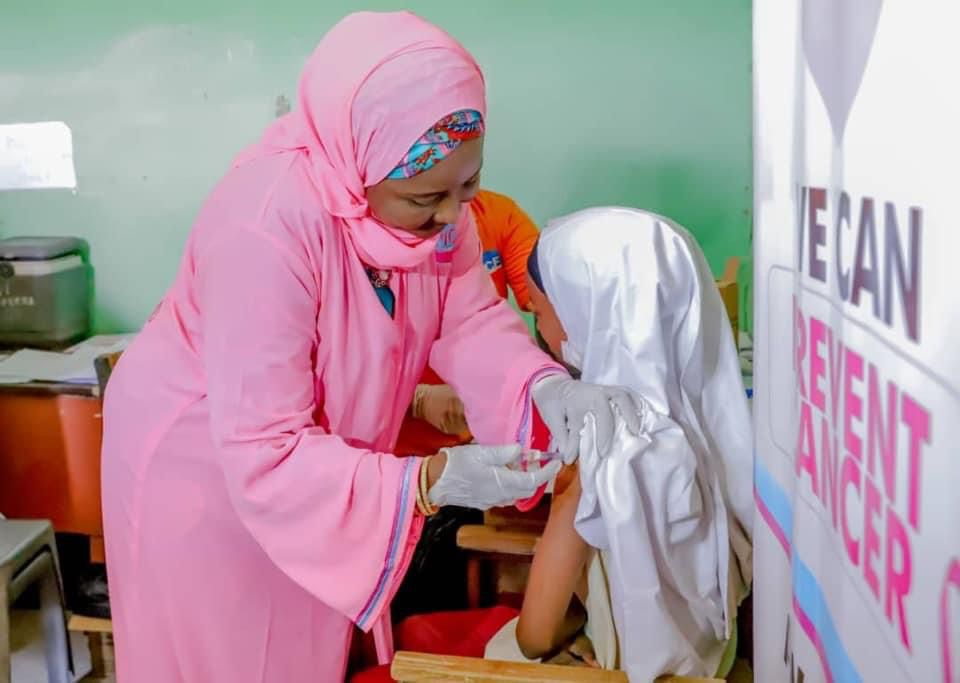
She lists tough questions: “How do we ensure someone in a rural area can access chemotherapy? How do we improve cancer awareness at the grassroots? Can we negotiate better service contracts for our radiotherapy machines?”
Success, she says, also hinges on human resources. “We have too few doctors. Yet, lecturers, doctors, nurses, physicists, and lab scientists are migrating to high-income countries. We must offer opportunities to keep them.”
She believes digital tools, exchange programmes, and better training can help stem the brain drain. She also wants more clinical trials in underrepresented regions and partnerships with organisations like AORTIC and the African Medicines Agency.
Mobilising the UICC to Get National Action
Bagudu is mindful of the opportunity her UICC presidency brings. “This is the first time we have an African at the helm. What can Africa bring to the table?”
In countries where health budgets are already stretched across malaria, HIV, and TB, cancer must fight for attention. “Getting cancer on political agendas requires strategy and persistence,” she says. Her UICC platform includes over 1,100 member organisations in 170+ countries.
“I understand how governments work. This is an opportunity to ensure global advocacy translates into national action.”
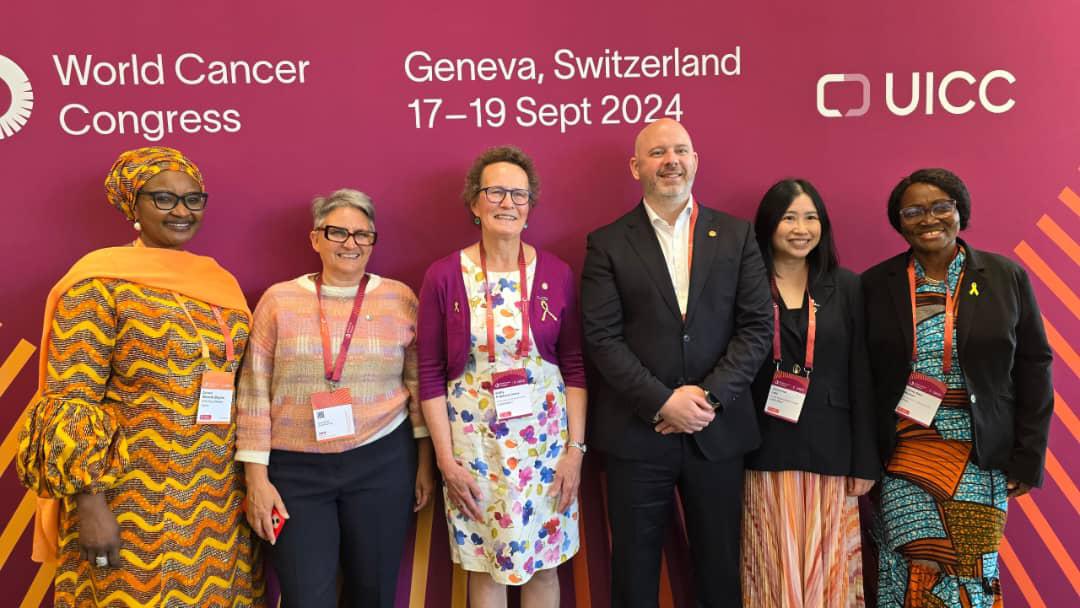
With global progress on cutting mortality from non-communicable diseases currently falling well short of the sustainable development goal of a reduction by a third by 2030, and with cancer incidence in countries with the lowest human development index predicted to almost double by 2040, the expertise and experience that Bagudu is set to bring to the Presidency of the UICC offers some welcome good news.
She is optimistic: “The UICC has already had an enormous global impact. World Cancer Day, for instance, has raised awareness worldwide.” Over the last six years as a UICC board member, she’s seen both the scale of the problem and the progress being made. Now, she says, is the time to build on that progress.
